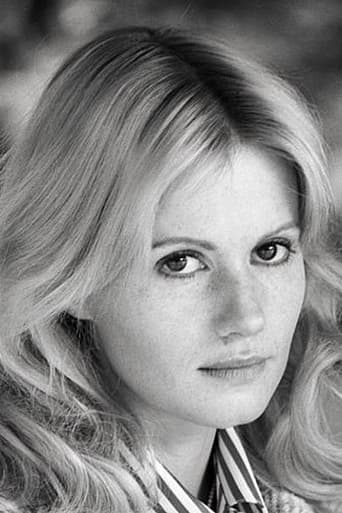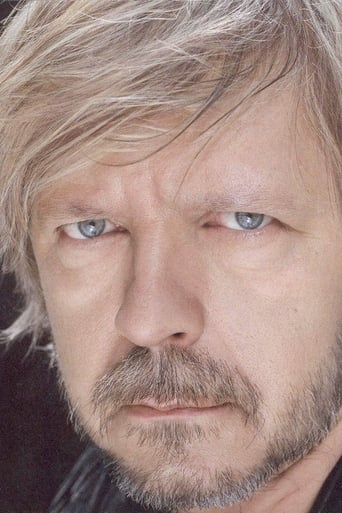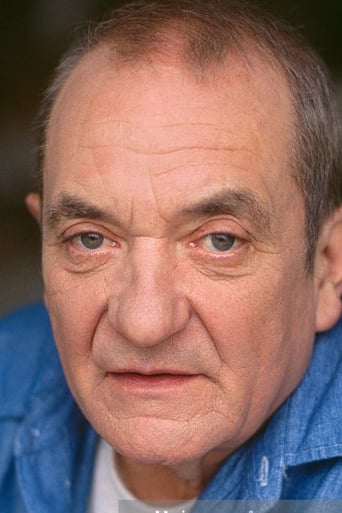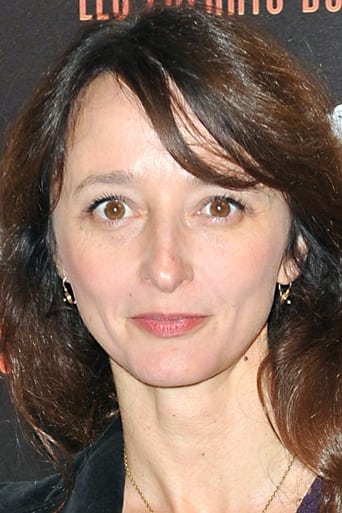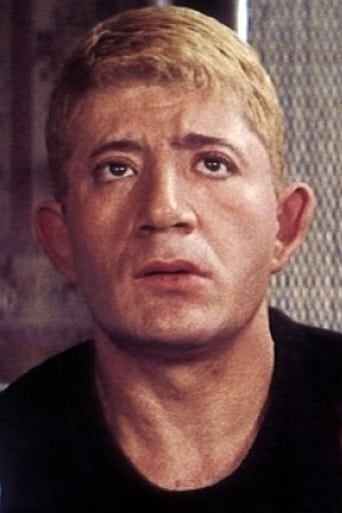Paynbob
It’s fine. It's literally the definition of a fine movie. You’ve seen it before, you know every beat and outcome before the characters even do. Only question is how much escapism you’re looking for.
Cheryl
A clunky actioner with a handful of cool moments.
ElMaruecan82
In 1867, Karl Marx theorized the struggle of the proletarian masses in economical words. But the emotional resonance rang from Emile Zola's "Germinal", 18 years after "The Capital" and the impact was so strong that at the death of Zola in 1902, a group of coal-miners marched during his funeral shouting "Germinal".Scholars look as it as a masterpiece of naturalism, a genre where Zola was the figurehead. His method consisted in collecting information from knowledge, then researches, on-the-spot investigations (as far as going down into the mine for "Germinal"). While he could collect notebooks with hundred pages worth of information, Zola insisted that the lion share of his story was the result of his own imagination and intuition, mirroring even his old friend Flaubert's conviction that a writer should also learn to make notebooks to better despise them. Personally, I do trust Zola's approach as I discover in the book characterization as rich and labyrinthine as a mine's gallery, from Lantier, the idealistic 'troublemaker', Maheu the quiet family man, Maheude, his hot-tempered wife or the brutish, alcoholic Chaval. Zola's book might say more about the torments of the working class (whose condition history slightly rose above slavery) than any documentary, and Zola's stance during the Dreyfus Affair cleared any doubt about the man's humanitarian motives. And "Germinal" is humanitarian as it reveals deep and disturbing truths without romanticizing the coal-miners: idealistic, rude, sensitive, ugly, or disillusioned. Lantier, portrayed by Renaud, embodies the outsider's perspective, the most likely to be the spark that ignites the wrath, as people from the mine are too alienated by their routine they can't see the machines they became. Yet there are no villains either, as the bourgeois are portrayed with similar impartial exactitude, just failing to inspire pity because they can eat. Movie-wise, "Germinal" is no Eisenstein material.Indeed, after the storm is gone, everything gets back to normal, Zola's final paragraph seems to predict that the next time will be the right one, but history didn't echo Zola's optimism although the prediction didn't necessarily imply for the last century. The problem with Claude Berri's film is that it is one century too late, and we have enough perspective to accept the ending as a defeat, the voice-over narration doesn't cancel the downer feeling. But who said you couldn't make great film out of a failure?Berri proved to be a lucid painter of human corruption, judging by his two masterpieces "Jean de Florette" and "Manon des Sources". And in "Germinal", he reminds us that the worst human traits transcend classes. One of the key characters is Chaval, a brute infatuated with Maheu's daughter Catherine. Jean-Roger Milo plays with gusto the street-smart man who's no less idealistic than the next schmuck but whose soul is already rotten by life's meaninglessness. Judith Henry, as Catherine, is sweet and submissive as going down the mine lowered her self-esteem in the process and made her believe she deserved Chaval more than the decent Lantier.The matriarch, (played by Miou-Miou) isn't the voice of consolation either, she resents Catherine because she now belongs to Chaval and so does her wage. That's one of the subtle lessons of "Germinal", coal-miners are as driven by money as capitalists, maybe more because it's a matter of life and death. The company gives them a house (the 'corons' in the North of France are an architectural heritage of the industrial era), and enough money not to die from hunger. They make children, as many arms to work but as many mouths to feed, stability depends on this fragile balance. But the film, following Zola's method and echoing the didacticism of John Ford's "Grapes of Wrath", explains why the strikes start. Minders are paid for the coal, but not the timbers they use to shore up the shafts, so they put less spirit in the timbering, causing more accidents. When the company pays the shoring, the wages for coal are reduced, leading to an even less profitable situation. On an intellectual level, "Germinal" works, so well in fact that the film might be less impressive when it gets spectacular. Indeed, Berri is never as efficient as during intimate or subtle interactions, when the rich daughter Cecile doesn't give the whole sweet bun to Maheude's children, only the half of it, it mirrors the way rich people hardly renounce their share. Miou-Miou is never as effective as in the quieter moments, her weird grunts at some tragic moments made me turn down the volume so my neighbors wouldn't get the wrong idea of the type of movies I watched. Renaud is a natural, he was the reason Berri wanted to make the film like Coluche for "Tchao Pantin" and Yves Montand for the Provence two-parter, as the singing Vox Populi, Renaud was meant to play Lantier. And Gérard Depardieu plays the brave old chap in a role that (I guess) wasn't too demanding. Some scenes are rather unnecessary as they had nothing to the big picture and all the "big" scenes with crowds of workers marching over the hills say less than the infamous cadaver's mutilation that contributed to the film's most shocking image. I won't spoil the scene but the look on the man's faces says a lot about the way things get easily out of control and it says something more about human nature. Berri adapted two movies from Marcel Pagnol, s about the basic need for water but saying so much more about the unlimited vileness of greed. "Germinal" works in a reverse way, on the surface, it might feel like a hymn for dignity, but maybe it's a film that also shows how far people go, when driven by some force as desperate and uncontrollable as hunger, to show, or to warn us.
beglenrice
Making a two-hour film out of a 500 page book is tough, sure. But this version stinks. I'm sure someone really thought (Claude Berri?) this would be good. The problem is the film scratches the surface of the world Zola created. An obvious example is the mine, Le Voreux itself, in the beginning is described as a kind of living, breathing, horrific thing that swallows humans by the cartload. The trepidation of Etienne in going down to work is described in the book with such detail that when you watch the film the reality of what horror it must have really been is reduced to a simple look of anxiety on Etienne's face while he comfortably waits to descend. There is no trace of the idea of Le Voreux being a monstrous man-swallower. Missing this thematic point has nothing to do with a film's running length. It's a classic movie rendering of a book, without flavor, without guts, without imagination. The casting is atrocious. Etienne is supposed to be twenty-one years old, this guy looks well into his thirties (he was 40 in 1992). It's an important factor. Gerard Depardieu is fat as Maheu, in the book these poor people were starving to death, skinny to the point of emaciation, yet here is Depardieu looking very well fed. Who said Depardieu was physically perfect for the role? Are you nuts? These people were starving to death. The way they portrayed the poor was so prettied up, the younger sister was hunchbacked by malnutrition in the book but here is a cute healthy looking girl of course, their hair is clean and clothes relatively tidy, they look like modern people dressed up. If they wanted to make it look real, these people would have looked like they were suffering physically, as Zola described them. Malnourished, with bad skin, teeth, etc. Berri or whomever didn't have the guts to really show what they must have looked like, it would have been too extreme. Yet the extremity is the book's central character in a way. Without that, this is garbage. Another example, in the mines, in the book, the characters would have to crawl on their hands and knees to get to the seam in places, in pitch-black darkness at points, and Etienne would have suffered all sorts of bruises and cuts, but in the movie they just stroll on up to the spot. The characters and setting in the movie do no justice to how the book describes things like the temperature, freezing cold one minute and dying of heat the next. There are many examples like this. I had to turn it off. The acting wasn't that good either, not necessarily their fault, when they're forced to generalize things that were compressed and not naturally developed in the film the way they were in the book. Look, of course it's difficult to adapt a book, especially a good book, but if you can't do it, just don't. You're embarrassing yourself. The contrast between the classes in this book and how it completely illuminates their difference make the story make sense. This movie unfortunately doesn't come close. Only stupid 21st/20th Century minds from the Civilized West could actually think the poor characters in the movie were shown realistically as impoverished. We have no idea. That's why you read the book. Make the movie if you have the courage to do it justice. Without showing the real conditions, the desperation of the people to strike doesn't make sense, they have to be willing to die, because they're dying already.
Zee Folk
Genius - Hollywood can never touch this. We should be thankful that there is a country that produces real films - and of this scope. I cringe to think how badly this would have been mutilated by Americans - we'd have a happy ending, they'd "go easy" on the commie stuff, there would be no premarital relations, the shopkeeper would be spared, some bland and muscly "action hero" type would catch the saboteur character and they'd fight with wrenches - sparks flying in the mineshaft. They would take out all social commentary, rename it etc etc... And then - the sequel "Germinal 2 - the Heroes of the Pit!" in a modern day setting with oil wells and helicopters. Anyway, in all sincerity, I hope the accountants of Hollywood never try to butcher this story.
George Parker
"Germinal", based on a novel by Emile Zola, is an epic film which studies the anatomy of a strike in a 19th century French coal mine. During it's 2.5+ hour run time, the film shows the wretchedness of coal miners, their deplorable living conditions, their attempts to organize, negotiations, strike, rioting, police suppression, sabotage, etc. The story is woven around a handful of characters who represent the forces at work; management, union, profiteers, scabs, etc.About Zola's novel, Havelock Ellis wrote: "It was neither amusing enough nor outrageous enough to attract the multitude". So it is with the film which emphasizes realism over romanticism and exists more as a study of a timeless social/political issue than pure commercial entertainment. A must see for cinema buffs but not likely have broad commercial appeal.

